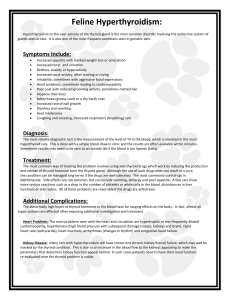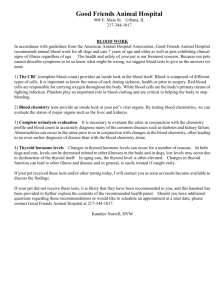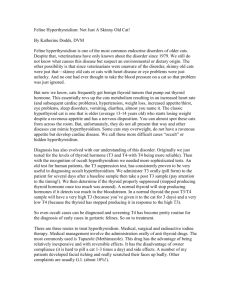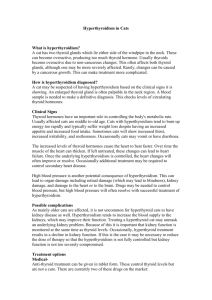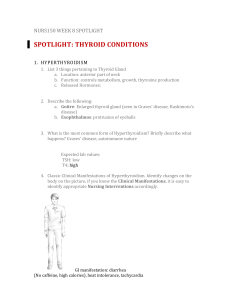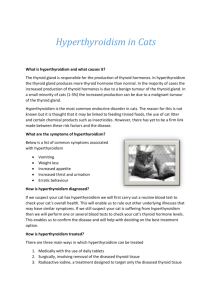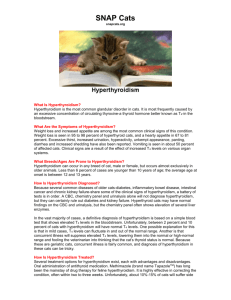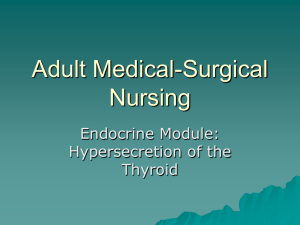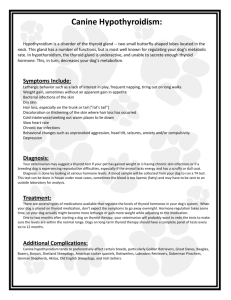Hyperthyroidism
advertisement
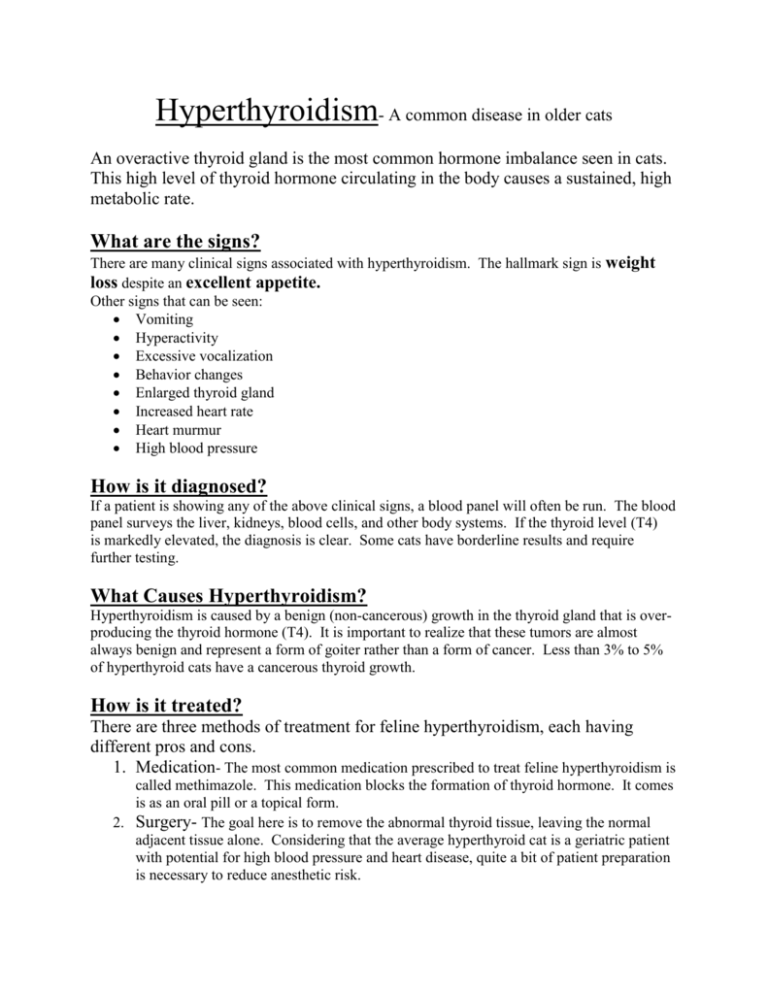
Hyperthyroidism- A common disease in older cats An overactive thyroid gland is the most common hormone imbalance seen in cats. This high level of thyroid hormone circulating in the body causes a sustained, high metabolic rate. What are the signs? There are many clinical signs associated with hyperthyroidism. The hallmark sign is weight loss despite an excellent appetite. Other signs that can be seen: Vomiting Hyperactivity Excessive vocalization Behavior changes Enlarged thyroid gland Increased heart rate Heart murmur High blood pressure How is it diagnosed? If a patient is showing any of the above clinical signs, a blood panel will often be run. The blood panel surveys the liver, kidneys, blood cells, and other body systems. If the thyroid level (T4) is markedly elevated, the diagnosis is clear. Some cats have borderline results and require further testing. What Causes Hyperthyroidism? Hyperthyroidism is caused by a benign (non-cancerous) growth in the thyroid gland that is overproducing the thyroid hormone (T4). It is important to realize that these tumors are almost always benign and represent a form of goiter rather than a form of cancer. Less than 3% to 5% of hyperthyroid cats have a cancerous thyroid growth. How is it treated? There are three methods of treatment for feline hyperthyroidism, each having different pros and cons. 1. Medication- The most common medication prescribed to treat feline hyperthyroidism is called methimazole. This medication blocks the formation of thyroid hormone. It comes is as an oral pill or a topical form. 2. Surgery- The goal here is to remove the abnormal thyroid tissue, leaving the normal adjacent tissue alone. Considering that the average hyperthyroid cat is a geriatric patient with potential for high blood pressure and heart disease, quite a bit of patient preparation is necessary to reduce anesthetic risk. 3. Radiotherapy- This method of therapy is generally considered the safest and most effective method of treatment for feline hyperthyroidism. A radioactive isotope of iodine called iodine 131 can be used to destroy the abnormal thyroid tissue. Why is it so Important to Treat Hyperthyroid Cats? Hyperthyroid cats frequently experience reduced quality of life through weight loss, muscle deterioration, chronic vomiting or chronic diarrhea. Not all cats experience these signs at the time of diagnosis but there are less visible reasons to treat: heart disease and high blood pressure. These problems can result in heart failure, sudden blindness, or sudden death which can be prevented with timely treatment for thyroid disease.
